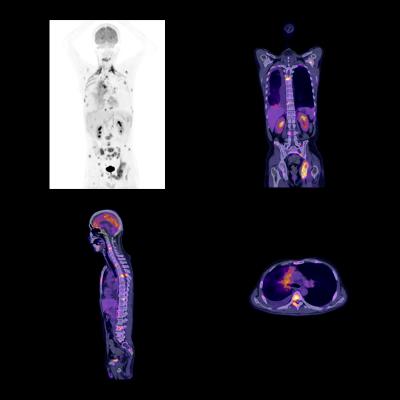
March 7, 2016 — Findings from the first multicenter clinical trial to relate disease recurrence patterns to the type of adjuvant therapy indicate that patients should receive a full course of chemotherapy rather than chemoradiotherapy following surgical treatment for pancreatic cancer.
Patients who received chemotherapy after surgical resection of pancreatic cancer have fewer distant disease recurrences and longer overall survival than those who also had adjuvant chemoradiation therapy. While a course of radiotherapy in addition to chemotherapy and a cancer operation reduced the number of local disease recurrences, it did not affect distant recurrences or survival.
The study, published online in the Journal of the American College of Surgeons in advance of print publication, evaluated survival and disease recurrence in 1,130 patients who underwent successful surgical resection for pancreatic cancer between January 2000 and December 2010. Most patients had grade 2, Stage II disease (grade 4, Stage IV is the most advanced), and they received no treatment for cancer prior to surgery. Alexander A. Parikh, M.D., MPH, FACS, associate professor of surgery at Vanderbilt University, Nashville, Tenn., led the study; its results were presented at the Southern Surgical Association meeting in Hot Springs, Va., in December 2015.
Pancreatic cancer is the fourth most common cause of cancer death in the United States, according to the Centers of Disease Control and Prevention (CDC), with an estimated 48,960 new cases per year. Although surgical resection offers a potential cure, most patients have locally advanced or metastatic disease at diagnosis. Consequently, only 10 to 15 percent of patients are candidates for a potentially curative operation. Even among patients whose disease has been successfully resected, recurrence is common. Between 50 and 90 percent of patients have recurrences, and most of these patients die because of their disease.
Because of the high incidence of disease recurrence, adjuvant therapy is given routinely after surgery for pancreatic cancer. Adjuvant therapy typically involves systemic chemotherapy given with or without chemoradiotherapy. A six-month course of chemotherapy is considered to be standard. The role of adjuvant chemoradiation, however, is often used at the discretion of the treating physician, and is usually recommended for patients who have signs of local disease advancement, such as positive lymph nodes or positive surgical margins.
Parikh noted that this study is the first to examine the relationship between adjuvant chemotherapy and chemotherapy plus radiation on the patterns of disease recurrence and overall survival after primary surgical resection of pancreatic cancer. It was conducted by the Central Pancreatic Consortium (CPC), which includes nine academic medical centers that treat high volumes of patients with pancreatic cancer. "Individual institutions may differ slightly in the way they treat pancreatic cancer patients. When we do a collective, multicenter study, we decrease those differences and can provide insights that reflect the majority of what good pancreatic cancer care in America is," he said.
The researchers assessed the patterns of disease recurrence in three groups of patients: those who underwent a surgical procedure alone, those who had adjuvant chemotherapy and those who had radiotherapy in addition to chemotherapy. Patients were followed for a median period of 18 months. Parikh explained that a previous study by CPC a few years ago found that radiotherapy did not affect survival in certain groups of patients. "The goal here was to determine how adjuvant therapy affects disease recurrence."
When controlling for several associated factors, adjuvant chemotherapy led to a 29 percent improvement in overall survival when compared to surgery alone while chemoradiation did not significantly improve survival. The incidence of local recurrence was significantly decreased by both chemotherapy (41 percent) and chemoradiation (49 percent). The incidence of distant recurrence was significantly lower only after chemotherapy (26 percent). It was not affected by chemoradiation.
"Unless we get better evidence to show that radiation helps in resected pancreatic cancer, we believe adjuvant therapy should be confined to chemotherapy after surgery," Parikh said.
Parikh pointed out that while delivering adjuvant chemoradiotherapy, physicians significantly reduce the amount of chemotherapy that is administered. "All patients should get at least six months of chemotherapy. If there is a role for chemoradiotherapy, it should not be given at the expense of giving less chemotherapy," he concluded.
Study coauthors are Amelia Maiga, M.D., MPH; David Bentrem, M.D., FACS; Malcolm H. Squires III, M.D.; David A. Kooby, M.D., FACS; Shishir K. Maithel, M.D., FACS: Sharon M. Weber, M.D., FACS; Clifford S. Cho, M.D., FACS; Matthew Katz, M.D., FACS; Robert C. Martin, M.D., Ph.D., FACS; Charles R. Scoggins, M.D., FACS; Jeff Sutton, M.D.; Syed A. Ahmad, M.D., FACS; Daniel E. Abbott, M.D., FACS, Jacquelyn Carr, M.D.; Hong Jim Kim, M.D., FACS; Danny Yakoub, M.D.; Kamran Idrees, M.D., FACS; Nipun Merchant, M.D., FACS.
For more information: www.journalacs.org


 January 30, 2026
January 30, 2026 









